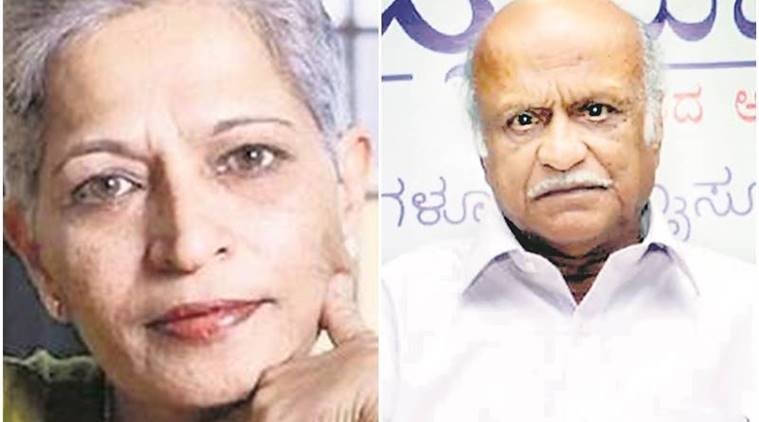“Why is Modi silent about Gauri Lankesh and Kalburgi in the state?”
Subbaiah lashed out at the BJP National President Amit Shah and the PM, for being silent on the killings of Gauri Lankesh and M M Kalburgi.
Modi, who is travelling across the election-bound state of Karnataka for campaigning, is invoking the death of BJP’s 24 Hindu activists in the state. This strategy by the BJP is being perceived as an attempt to bag some Hindu sympathy votes.
“Who are these 24 Hindus that the PM is grieving about?” asked Subbaiah. Modi and his party are bothered about Hindus who are proponents of Hindutva and its communal politics and not the others, he said.
As Dr. V Lakshminarayana, former People’s Union of Civil Liberties (PUCL) president and currently a member of CPI(ML) said, “This seems to be the only thing that the BJP in the state has left to do and woe the Hindu upper caste voters. (…) RSS has had a stronghold in the Dakshina Kannada region. It has been very easy for them to communalise the upper caste and backward caste Hindus in the region because the Muslims in this region come from an economically powerful class, unlike other regions in the state. Using this as a tool, RSS has been successful in pitting Hindus in Dakshina Kannada region against Muslims.” He emphasised that there is no need to differentiate between RSS and BJP. “They are the same.”
V. Nagaraj, Kshetriya Sanghachalak of the RSS, and in-charge of Karnataka, Andhra Pradesh and Telangana, speaking to The Hindu had said, “Swayamsevaks (volunteers) are free to work if they want. The RSS will not issue any direction to them. As they are swayamsevaks, naturally they oppose political parties that are against nationalism, Hindutva, Hindu society, and the Sangh ideology. It is a natural corollary to support the BJP and not any party that opposes their basic Hindutva ideology. If any other party practices the value swayamsevaks cherish, they may support them also in the days to come.’’
Rati Rao, from PUCL, Mysore spoke about the ways in which RSS is communalising the state. She said, “Fact-finding report of a riot in Mudhol in Bagalkot district is very important. In Mudhol, RSS had taken out a procession of a Ganesha idol during a festival in the narrow streets of this small town. This had led to some clashes between the Muslim and the Hindu communities there. The fact finding-report of the PUCL had found out that the RSS had burnt and destroyed the Muslim properties and this, in turn, had forced the Muslims in the region to leaving the place.”
Rao pointed out that one can see this happening everywhere and even in a city like Mysore. “It is the strategy of the RSS; anything happens, the first thing they do is destroy Muslim properties,” she said. The Mudhol fact-finding presented a pattern in the communal violence instances in the state. “Now, it is Hanuman. Hanuman Jayanti is a hot topic. They come up with new public festivals to create a menace by destroying public property and arresting the innocent. With the kind of police we have today, the Muslim youth are attacked. After the Mudhol fact-finding, we also went around visiting places that were affected and we found out that they (RSS) had done the same thing everywhere using Ganesha festival as a reason,” said Rao.
This is not a new trend in the state. According to a report put together by the Alternative Law Forum, it goes back to as early as 1978 in Bhatkal; 1984, 1990 in Kolar; 2003 in Adugodi in Bengaluru. Modi and BJP are now invoking all of these riots to polarise the voters in the state this election.
Courtesy: Newsclick.in
